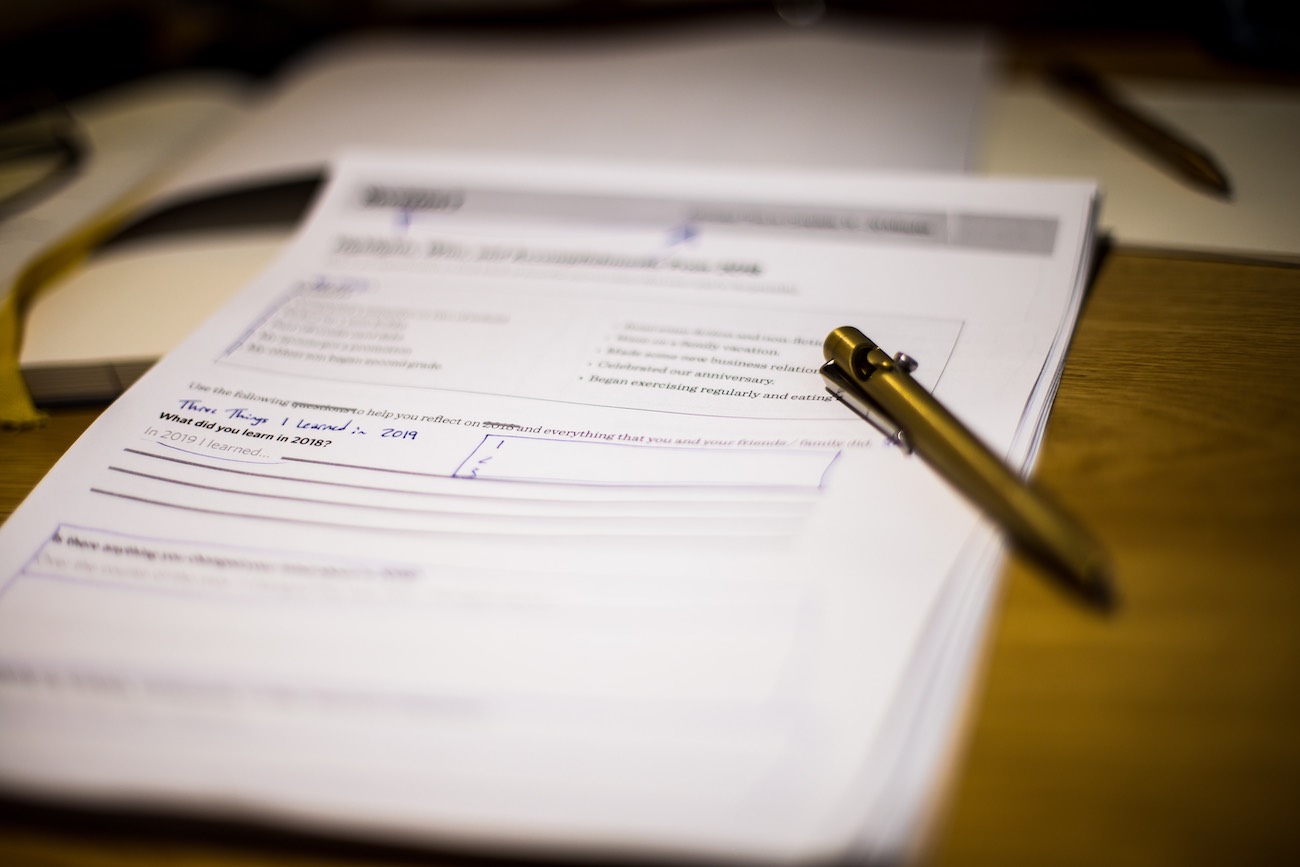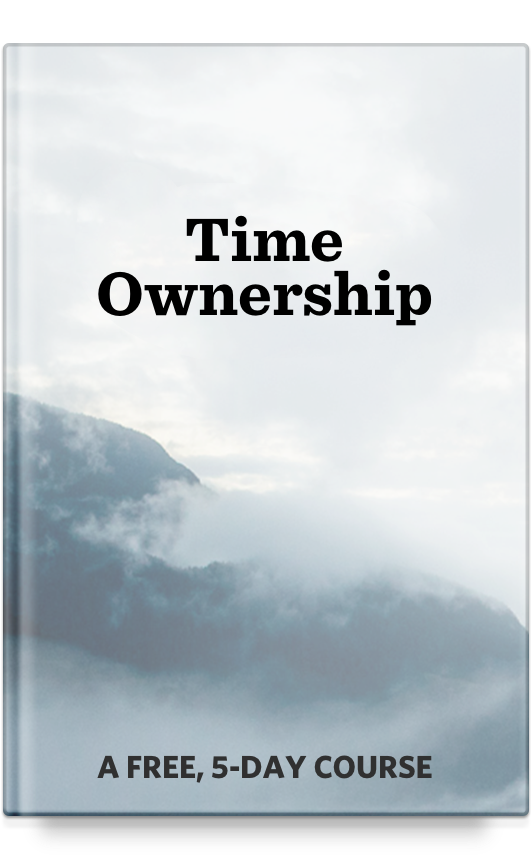With New Year’s resolution season just around the corner, it’s almost time to start thinking back to what this year’s new resolutions were.
What was that thing I compulsively told myself was going to be a priority this year?
The end of the year and the start of a new one is a natural time to reflect. I may give New Year’s resolutions a hard time, but there’s nothing wrong with taking time to evaluate where things stand and deciding where change needs to be made.
The practice of reflection is a good thing. And the truth is, it’s quite difficult to make lasting change without first taking time to reflect. Once or twice a year is a good interval for big picture review and assessment, but (at the same time) it’s not nearly enough. Regular reflection is essential for any area of life in which you hope to excel.
Let’s dive in.
Reflect
Ponder may be a better word — to weigh in the mind, to think about, consider.
Why is it important?
While taking time once or twice a year to ponder the events of your life is helpful, it could also be likened to taking a cross-country road trip and consulting the map once before setting off for your destination. Don’t be surprised if you end up somewhere other than you intended.
Reflection isn’t just about the destination or progress of a goal, it’s about making sense of things in our world. Relationships that matter, our emotional and mental state, new ideas, desires that are stirred by a chance encounter, regular intervals of taking pause to ponder the events of our day, week, or month is allowing ourself to fill in the gaps on the map.
Ryan Holiday writes on the practice of journaling, “This is what the best journals look like. They aren’t for the reader. They are for the writer. To slow the mind down. To wage peace with oneself.”
Whatever your preferred term — journaling, meditation, reflection — clarifying and capturing your thoughts is essential to wade through the mass of information we face on a daily basis.
Instead of carrying that baggage around in our heads or hearts, we put it down on paper. Instead of letting racing thoughts run unchecked or leaving half-baked assumptions unquestioned, we force ourselves to write and examine them. Putting your own thinking down on paper lets you see it from a distance. It gives you objectivity that is so often missing when anxiety and fears and frustrations flood your mind. — Ryan Holiday, Stillness is the Key
It can be a challenge to deeply process our thoughts or experiences without first articulating what we truly think. How easily we can decipher the challenges our friends face, but when it comes to our own life it feels muddy and unclear. We need that distance to analyze without inhibition.
This is why the practice of writing is particularly helpful. It slows us down, allows us to say what we think — what we believe.
Our beliefs shift slowly as we gain experience and journal entries have the ability to freeze your thoughts in time. — James Clear, Journaling One Sentence
Course Correct
With so much competing for our attention, we need regular times of reflection to ensure we’re on course. Self-reflection is the mirror in which we look to take honest inventory.
- Do my actions align with my beliefs?
- Am I headed in the direction I truly want to be?
Life is constantly changing and we must adapt to keep up with it.
Moments of reflection are like consulting a map. You’re able to see from a high level where you’d like to go, and based on that you can make minor (or major) course corrections to keep things on track.
Another added advantage of consistently slowing down to listen and learn from your life experiences is that you’re able to take what you learn and use it in real time. Isn’t that the point after all? To get unstuck from rhythms of bad thinking or decision making.
The bottom line, how can we make lasting relevant change if we haven’t taken time to clarify what is ultimately important?
Tips for Reflection
Many get tripped up by the method or length of reflection. If it’s not a perfect unbroken chain of daily entries, then why even bother? I know I’ve fallen prey to that line of thinking, but the point is more times of reflection in small doses.
I love James Clear’s idea of journaling one sentence per day. As he says, there is no right way to journal. Make it easy, make it fun. He partnered up with Baron Fig to make a habit tracking journal, which has a one line per day log for this purpose. I highly recommend the notebook.
But you could use any old notebook for that matter. Capture thoughts, ideas, quotes — the simplest of things. And whether that commonplace book is a physical notebook or an app like Day One, the key is consistency over time.
Everyone has time to write down a sentence per day. Whether that’s with pen and paper or dropping a note in a new digital journal entry, we have time. So if we have the time and we know that we’ll be glad five years from now we kept a closer watch on our thoughts, why not start now.
Same place, same time, every day. Minimum of one sentence.
Journaling is a way to ask tough questions: Where am I standing in my own way? What’s the smallest step I can take toward a big thing today? Why am I so worked up about this? What blessings can I count right now? Why do I care so much about impressing people? What is the harder choice I’m avoiding? Do I rule my fears, or do they rule me? How will today’s difficulties reveal my character? — Ryan Holiday
Plan Your Year — a guided reflection process for looking back over the past year in preparation for the new one.

I’m really excited to share this new version with you!
Hero image by Margarida CSilva via Unsplash.
